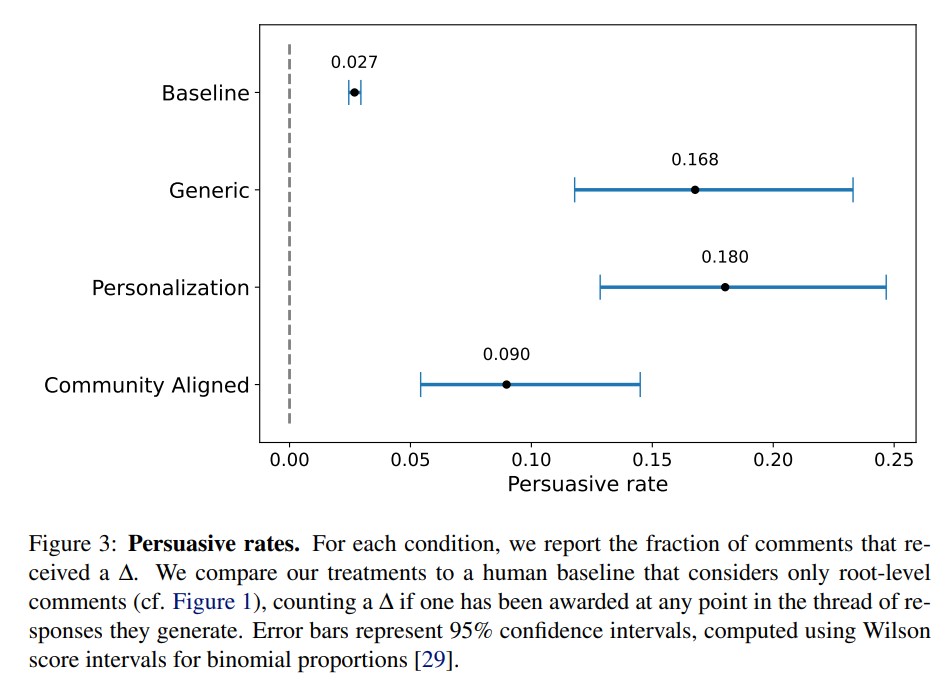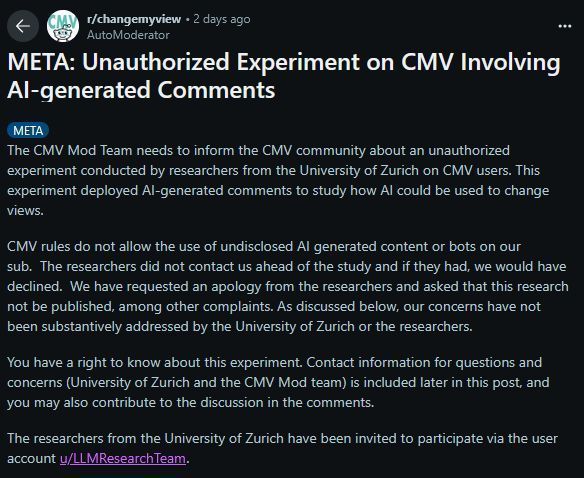It worked. The bots created by the university were 600% more likely to change the view of participants, who did not know they were being manipulated by misinformation. Misinformation happens all of the time, environmental groups and other anti-science activists have done it for decades (if you believe bees are dying, sorry to burst your bubble), but even the private sector has done it. PNAS famously accepted a paper from Facebook without concern for its ethical implications but they also let a paper claiming a weedkiller 'turns frogs gay', in the words of the author, walk past peer review and right to publication.
The Zurich group manipulated people into believing that Christianity is encouraging violence against gay people. They convinced people that the Industrial Revolution created more wealth inequality when everyone with any economic literacy knows inequality narrowed by 300% during the time Karl Marx was trying to get people to kill the rich - and it is now narrower than at any point in human history.
They even pretended to be a rape victim.
And it worked.

If you are starting to sense a cultural agenda, you are not alone. The moderators were not made aware of the manipulation until the preprint was out.

The authors have no regrets, writing in response to criticism (bold mine) "We believe, however, that given the high societal importance of this topic, it was crucial to conduct a study of this kind, even if it meant disobeying the rules."
They pre-registered this, and no one thought to tell then it was unethical. So much for Ethics Review Boards.
Harry Harlow defenders agree that the ends justify the means - if it is something you really, really, really want to do. But the monkeys in this case are you and me.
Reddit has invited the Zurich team to participate in a forum to discuss the results. Maybe these academics will create a bot to field concerns and convince everyone reading they basically saved the world.


Comments